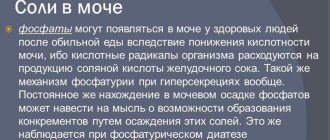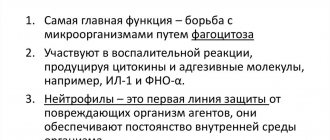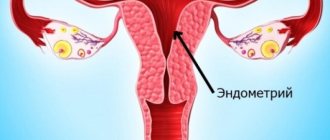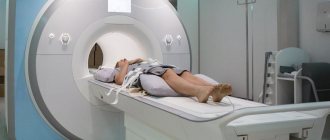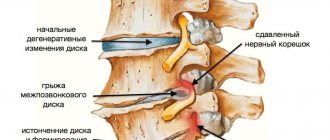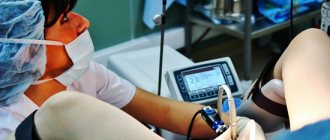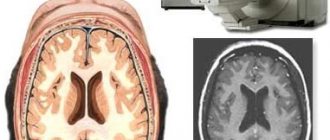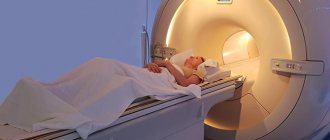Briefly about the MRI technique and indications
The principle of MRI is nuclear magnetic resonance, which began to be actively used after the 70th year.
The diagnostic procedure has gained popularity thanks to modern equipment - tomographs, which help identify minor pathologies of organs and tissues at the initial stage of their development.
MRI
If at the beginning of the use of MRI it was used to identify pathological processes in the brain, now MRI is prescribed to study a large number of organs, especially with the use of a contrast agent.
Possible indications for MRI diagnostics:
| Type of procedure | Indications |
| MRI of the brain | - neoplasms - stroke - suspicion of the presence of an aneurysm - structural anomalies - head injuries - eye and ear diseases |
| MRI of the pituitary gland | — migraines — disruptions in the menstrual cycle — disturbances in the functioning of the endocrine system |
| MRI of the sinuses | — allergic rhinitis — frequent headaches — pain in the tooth, cheekbones — chronic inflammation of the upper respiratory systems — suspicion of cancer |
| MRI of the thoracic region and mediastinum | — blood clots in the heart area — defects — cancer detection — emphysema — pneumonia |
| Abdominal MRI | - suspicion of the development of oncology - congenital structural features of organs - trauma to the area - suspicion of the presence of foreign objects (except metal) - identification of the nature and stage of the developing pathology |
| MRI of the adrenal glands | - high or low blood pressure - active hair growth on a woman’s body and face - muscle weakness - sudden fluctuations in weight (of unclear nature) - enlarged mammary glands in a man |
| MRI of the pelvic organs | — organ injuries — infertility — congenital changes in the genitourinary system — severe pain in the local area — vaginal bleeding of unknown etiology in women — postoperative control |
| MRI of the spine | — injuries of the spinal column — chronic pathologies of the spine — suspicion of the development of oncology — herniated intervertebral discs |
Why there may be restrictions on MRI diagnostics
During an MRI examination, the patient is exposed to a powerful electromagnetic field. Hydrogen molecules in the tissues of the human body, under the influence of corresponding waves, change their direction.
Limitations of MRI
In some cases, the described process may be dangerous to the patient's health, even despite the absence of radiation exposure.
Before prescribing an MRI to a patient, the doctor interviews the patient to determine a list of possible limitations.
A person should be frank with a doctor, since the number of contraindications in the case of magnetic tomography is large. The entire set of restrictions is divided into two groups.
MRI of the brain with contrast in a child
Examining a child presents certain difficulties for both parents and staff.
On the one hand, contrast-enhanced MRI of the head eliminates radiation exposure, unlike CT. MRI can be repeated as often as required, but CT scans can be repeated only once every six months.
On the other hand, the examination takes much longer than a CT scan with a contrast agent, and for a baby to lie still for half an hour is a problem.
The situation is first discussed with the child’s attending physician, and all the pros and cons are weighed. The balance may be tilted in favor of an MRI if the child is allergic to iodine-containing drugs - the contrast agent for CT scans contains iodine.
For children under five years of age, the procedure can be performed under anesthesia, in consultation with their parents. The choice of contrast agent is also discussed. Parents can be present during the examination, having previously removed metal-containing objects (hairpins, jewelry, belts, etc.).
A set of absolute contraindications to MRI diagnostics
Absolute contraindications to MRI are a reason to search for an alternative type of diagnosis. Details about each of the restrictions are below.
Metal objects
The specialist will prohibit the patient from undergoing examination if the following metal objects are found on his body:
- parts of clothing (buttons, buttons, etc.);
- jewelry (brooch, earrings, etc.) that contain metal;
- hair care items (hairpins, hairpins);
- piercing;
- hearing aid;
- office;
- glasses.
Implants and electronic devices
MRI diagnostics cannot be performed on persons who have implants and electronic medical devices in their body:
- pacemaker;
- medical clips;
- metal spirals in vessels;
- heart valve;
- dentures and braces;
- pumps;
- cochlear implants;
- joint prostheses;
- nerve stimulants;
- surgical materials (pins, screws, etc.).
Types of braces
Metal objects, implants and devices will result in distorted images. There is a possibility of harm to the patient's health.
Powerful electromagnetic radiation can move implants or slow down the operation of an electronic device.
Bullets and shrapnel
Among other metal objects, bullets and shrapnel may be found in the body. Under such circumstances, MRI diagnostics is also contraindicated for the patient.
These elements can affect the quality of the resulting images. Under the influence of a magnetic field, these elements will shift, which means they will cause severe pain to the patient or even lead to the death of the subject.
Before undergoing an MRI examination, the patient will have to remove metal objects (jewelry, glasses, clothing).
If it is not possible to remove the object, as in the case of a bullet or shrapnel, it is necessary to look for an alternative diagnostic method.
Possibility of an allergic reaction
The absolute limitations of MRI include allergies to contrast, which is used for the purpose of detailing the image. The basic component of the product is gadolinium. It acts as an allergen.
The risk of developing an undesirable reaction is small, however, in order to avoid making a mistake, the patient undergoes an allergy test to the drug.
If no adverse reactions occur, the person is sent for diagnostics. Otherwise, the doctor prescribes an adequate alternative.
People with kidney failure or suspected kidney disease are among the patients who should not have an MRI with contrast.
Side effects of tomography with contrast
When a contrast agent is administered, the patient may experience unpleasant changes that are not considered an allergic reaction. They do not become a reason to interrupt or cancel the procedure. These are side effects of administering the drug intravenously. These include:
- nagging pain along the vein into which contrast is injected. Pain sensations may radiate (give) to the armpit;
- coldness or warmth in the vein;
- metallic taste in the mouth;
- headache or dizziness;
- blood pressure drop within 20 mm Hg from normal for the patient.
Such sensations do not require drug intervention and disappear after the examination is stopped. But it is necessary to warn the doctor, since they can become harbingers of more serious changes and such a patient will need additional monitoring.
Group of relative contraindications to MRI
Relative contraindications to magnetic resonance imaging:
- claustrophobia (possible use of open-type equipment);
- the presence of non-ferromagnetic inner ear implants and other elements for medical purposes;
- the presence of tattoos containing metallic pigment (diagnosis is not excluded if the body pattern is localized outside the study area);
- mental disorders of the patient;
- first trimester of pregnancy and lactation;
- injuries accompanied by a serious human condition;
- the patient is overweight.
It’s worth taking a closer look at the four latest restrictions.
Mental disorders
The procedure itself does not pose a danger to persons with mental disorders, however, nervousness, aggressive behavior, panic attacks, alcohol and drug intoxication are reasons for refusing diagnosis.
The result of an MRI in this case may be a deterioration in the patient’s psycho-emotional behavior and poor-quality images. If the procedure cannot be canceled, the patient is asked to take sedatives.
Pregnancy and lactation period
Today, there is no direct evidence of the adverse effects of MRI diagnostics on the developing fetus. Therefore, a woman expecting a child, from a theoretical point of view, can be examined at any period of pregnancy, except for the 1st trimester.
Things are different if magnetic tomography is performed using a contrast agent. The components of the product can negatively affect the child and cause the development of severe pathological processes in the baby’s body after birth.
The same reason becomes a reason for refusing MRI diagnostics to a woman who is breastfeeding. You can resume lactation a couple of days after the procedure.
Trauma and serious condition of the patient
Certain injuries, such as open fractures, limit the use of MRI. During the diagnostic process, the patient will have to remain motionless for a long period - pain and discomfort will not allow the patient to remain calm.
The result of such a study can be not only a poor-quality image, but also a deterioration in the patient’s condition.
If it is not possible to refuse the procedure, it is permissible to use an open-type MRI scanner to alleviate the discomfort of the person being examined.
Open type (C-shaped)
When the pain is intense and does not allow the patient to remain in one position, it is worth considering replacing MRI with an alternative type of diagnosis.
Obesity
It is not easy to make a diagnosis using MRI for a person weighing more than 120 kg: the equipment table is not designed for such a weight, and the patient will not be able to fit into the magnetic tunnel.
An additional reason for refusing an MRI diagnosis to an obese person is the low information content of the technique in the case of people diagnosed with obesity.
A solution in such circumstances may be to conduct a study in an open-type tomograph. Some medical centers have specialized equipment designed for overweight people.
Magnetic resonance imaging is a diagnostic method that is characterized by an extensive list of limitations.
However, it is important to emphasize that all contraindications are objective and justified in order to preserve the health of the person being examined.
Before undergoing diagnostics, it is important to remain frank with the specialist and strictly follow the doctor’s recommendations when preparing for MRI diagnostics and during the scanning process.
